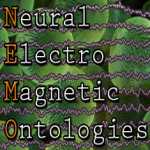UO Team Awarded $2.2 Million Grant

Principal Investigator Dr. Dejing Dou (Assistant Prof., CIS Dept.) and Co-Investigators Dr. Gwen Frishkoff (Assistant Prof, Psychology Dept. at Georgia State University), Dr. Allen Malony (Prof., CIS Dept. and Director of the NeuroInformatics Center, or NIC) and Dr. Don Tucker (Prof., Psychology Dept. and Co-Director of the NIC) have been awarded a $2.2 million grant from the National Institutes of Health (NIH) to develop Neural ElectroMagnetic Ontologies (NEMO), a system of formal ontologies and ontology-based tools to support sharing and meta-analysis of event-related brain potentials (ERP) data. This four-year project is one of the largest grants ever received by CIS department faculty. The UO will receive around 80% of the grant, and remaining funds will be distributed among an international group partners in the NEMO consortium, including researchers at the University of Colorado (PI, Tim Curran), University of Louisville (PI, Dennise Molfese), University of Pittsburgh (PI, Charles Perfetti), McMaster University (PI, John Connolly), and the University of Glasgow (PI, Kerry Kilborn).
NEMO aims to develop ontologies and ontology-based methods for representing and sharing event-related brain potentials (ERP) data from experimental studies of neural processes underlying human language and cognition. The NEMO project will be the first to develop formal ontologies for the ERP domain. These ontologies will be used to represent the current state of knowledge in the ERP domain and to support ontology-based mark-up (annotation) of ERP experiment data collected within our NEMO consortium. With the ontology-based mapping and integration tools developed for this project, the NEMO research team aims to conduct meta-analyses of ERP patterns in language and cognition, combining results from a variety of ERP research paradigms and different analysis methods and results from our international team of ERP researchers.
Dou and colleagues have worked together for several years to complete preliminary work that formed that foundation for the NEMO NIH grant proposal. Because of the projects potential for high impact in brain research and continuous research progress and publications, it was one of two proposals identified by the National Institute of Biomedical Imaging and BioEngineering (NIBIB) at NIH for 2008-2009 as a project with potentially "high impact." According to Dou, the project will enable the UO to become a world center for EEG/ERP ontology development and data sharing.
The NEMO web portal can be viewed at http://nemo.nic.uoregon.edu/, and the project information can be found at http://aimlab.cs.uoregon.edu/NEMO/web/.